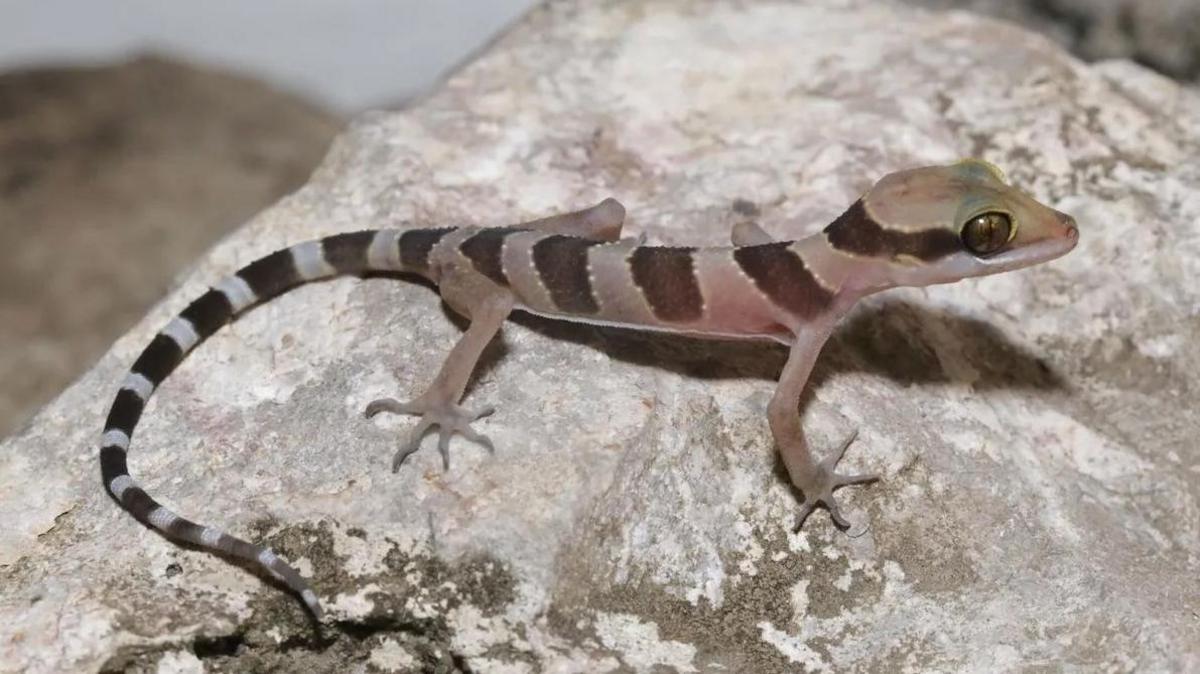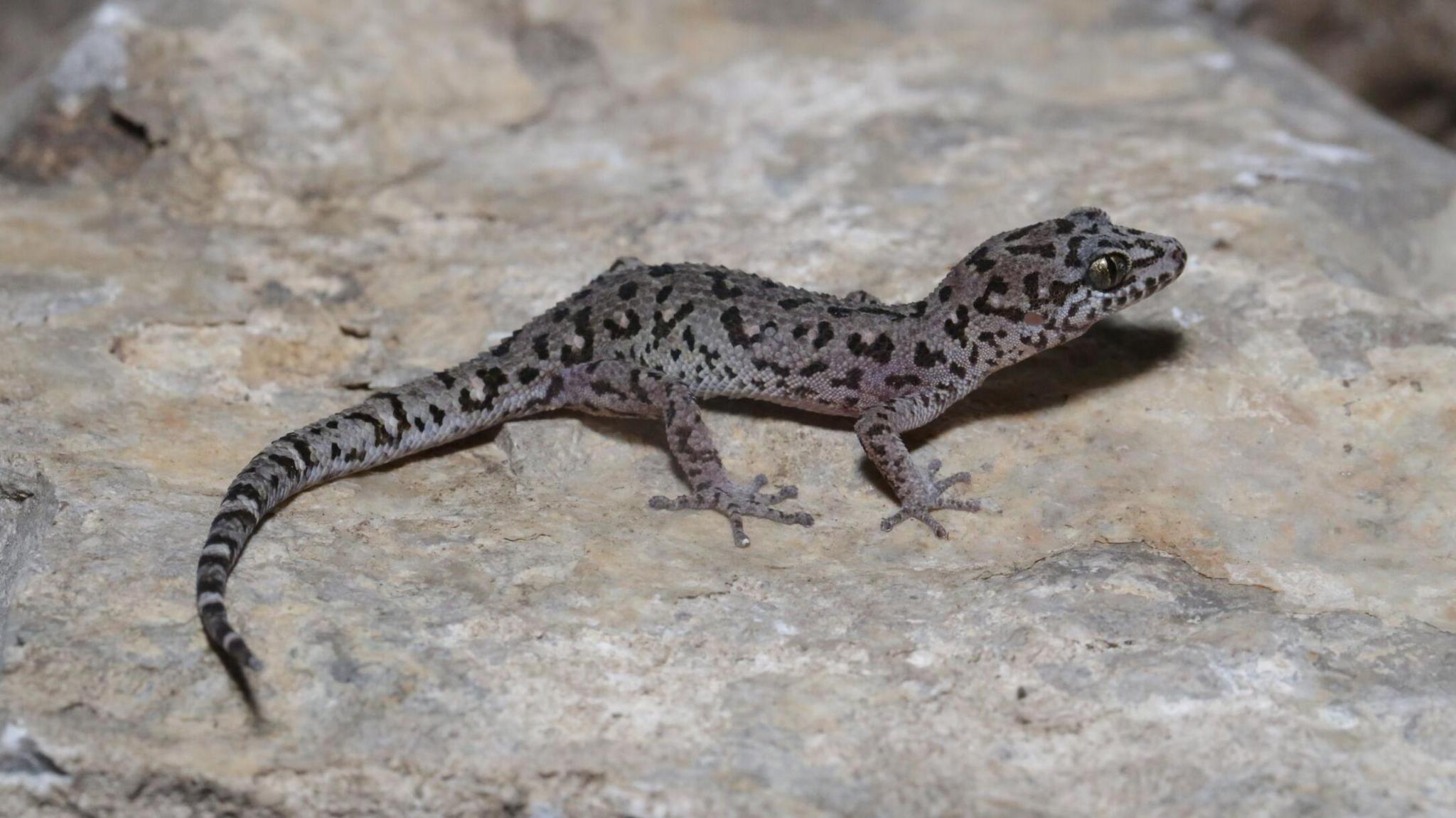New species of gecko discovered

Four new populations of the Kamping Poi bent-toed gecko were found by researchers in Cambodia
- Published
A number of different species of gecko have been discovered amongst unexplored limestone hills in Battambang Province, western Cambodia.
Four populations of gecko have been identified as a new species - the striped Kamping Poi bent-toed gecko.
Researchers believe the species could even be split into four different species upon further study.
The survey, by Fauna & Flora's Cambodia team, Cambodia's Ministry of Environment staff and a group of experts from La Sierra University in the US, revealed two other rare species of gecko as well.
- Published12 March 2024
- Published5 June
The four groups found have been described as one species, called Cyrtodactylus kampingpoiensis.
Researchers believe they could be revealed to be four different species after further study.
This is partly because of the geographic isolation of the geckos.
When species are separated geographically they can evolve independently and become genetically separate enough to be considered a different species.
The geckos were found in karst formations, which is a type of landscape where layers of bedrock have dissolved forming underground streams and sinkholes.

Battambang leaf-toed gecko, Dixonius noctivagus was one of the species discovered
Two other species were discovered during the survey.
The Battambang leaf-toed gecko, Dixonius noctivagus, which is covered in tiny leopard-like spots.
The gecko is named after their nightly habits - "noctivagus" means "night wanderer" in Latin.
A third species of gecko, Hemiphyllodactylus khpoh, was also found during the same survey and but has previously been confirmed as a new species in the Zootaxa journal.
Researchers expect the newly discovered geckos to be classed as Critically Endangered.
Pablo Sinovas, Country Director, Fauna & Flora Cambodia Programme and survey team member, said the area they explored for their research is "largely uncharted".
He said he was concerned about the impact of "human activities" like tourism and mining on the area.
"We must prioritise the protection of these fragile karst ecosystems before rare species are lost forever."
